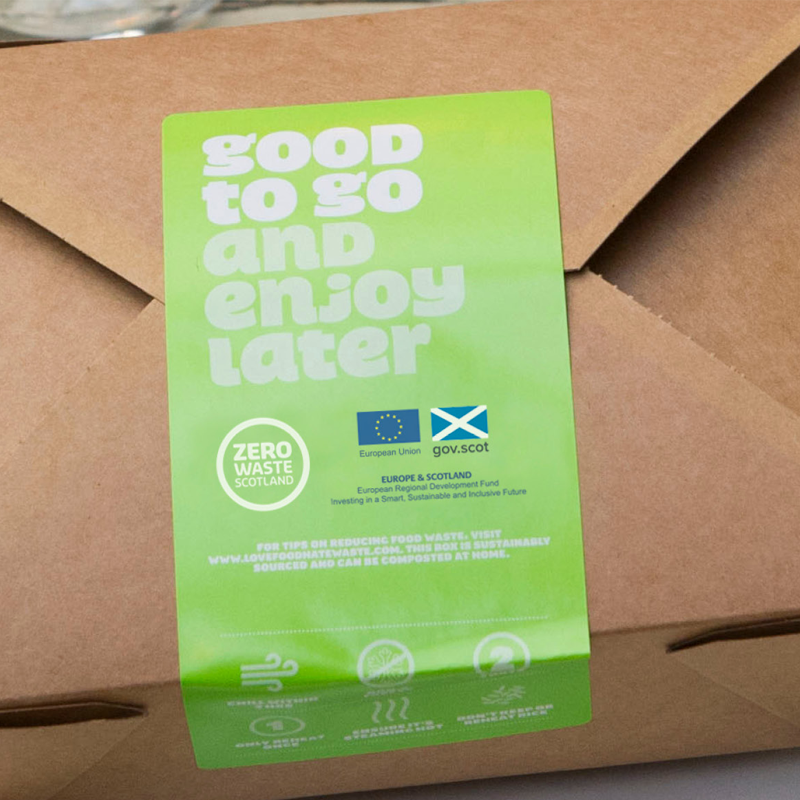
Scotland's Food Waste Reduction Action Plan
Scotland plans to meet its ambitious target to reduce its food waste by one third by 2025.
Food waste is a global problem. An estimated 1.3 billion tonnes of food are wasted every year. This is around one third of all that is produced for human consumption, and it is generating about 8% of the world’s greenhouse gas emissions.
Acting on Food Waste: Scotland’s 2025 Food Waste Target
Scotland has a food waste problem too. In 2014 Scottish households threw away around 600,000 tonnes of food and drink waste (Zero Waste Scotland, 2016).
When we waste food, we also waste all the energy and resources that went into producing, processing, transporting and cooking it. We also lose the money spent on all these things – meaning that businesses are less efficient and competitive than they could be, and that householders have spent money unnecessarily.
On top if this, if food waste then ends up in landfill, it generates even more emissions in the form of methane gas. Methane is many times more harmful to the environment than carbon dioxide. Food waste is also a potentially valuable resource (for energy, fuel or for fertiliser) that we lose to landfill
In 2016, the Scottish Government’s Making Things Last strategy announced an ambitious new target to reduce per capita food waste in Scotland by 33% (from 2013 levels) by 2025. This target was the first of its kind in Europe and recognises the critical role of food waste reduction in the fight against climate change and the transition to a more circular, resource efficient economy.
Increasingly, other European countries are adopting similarly ambitious targets for food waste reduction. The Netherlands launched its ‘United against food waste’ initiative in March 2018, with the aim of becoming the first country in Europe to meet the United Nation’s Sustainable Development Goal 12.3.

Why do we need a food waste action plan?
Household food waste alone accounts for 2,240,000 tonnes CO2 eq, this represents 2.9% of Scotland’s carbon footprint.
Food waste sent to landfill is particularly problematic as it releases methane, a greenhouse gas many times more potent than carbon dioxide. In 2016, 1.15 million tonnes of biodegradable waste (food waste and other organic waste such as garden waste) was sent to landfill in Scotland. This represented a 43% reduction over 10 years (CCC, 2018) but is still a challenging volume that must be reduced.
To achieve an ambitious objective like the 2025 food waste reduction target, we need long-term planning and equally ambitious policy efforts.
The Scottish Government recognised this in its Climate Change Plan: The Third Report on Proposals and Policies 2018-2032, where it announced that it would develop a National Food Waste Action Plan to reach its 33% target.
In January 2025, Scotland will ban the landfilling of biodegradable municipal waste. This Plan will help implement the ban by reducing the food waste in municipal waste. It will, therefore, support the continued reduction in emissions and Scotland’s climate targets.

What the action plan will achieve
We will make this change possible and reach our 33% reduction target by working across four vital and interconnected areas.
1. Improved monitoring and infrastructure
To reduce waste effectively, we need to improve our monitoring, measurement and reporting of food waste across all sectors. We will:
- Consult, by the end of 2019, on a mandatory national food waste reduction target and mandatory reporting of Scotland’s food surplus and waste by food businesses;
- Develop the infrastructure to support the reporting of food waste.
2. Sector leadership
Everyone in Scotland is expected to play their part in tackling food waste and reaching our target. We will support leadership, innovation, effectiveness and efficiency in Scotland’s public, private and hospitality sectors by:
- Building skills, competency and knowledge on the management of food waste;
- Sharing expertise and best practice;
- Promoting consistent, transparent, and Scottish-specific reporting on food waste following the principles of ‘Target, Measure, Act’;
- Working with leaders, forums, and professional and stakeholder groups to offer support and advice on reducing waste throughout the food supply chain; also creating ‘champions’ for the cause of reducing food waste.

3. Public engagement and communications
We are asking Scotland’s people to make changes in their choices and behaviours around food and food waste. We will deliver a sustained programme of communications designed to: raise people’s awareness and understanding of the food waste problem; engage them in activities that address the problem and; create citizen advocates for food waste reduction.
4. Supporting delivery of a new approach to food waste
Driving effective change throughout the food supply chain needs a coordinated approach. Through a new Food Waste Hub, we will:
Connect businesses seeking to reduce food waste with the funding, support and innovations that they need;
Identify the skills that Scotland needs if we are to develop new ways of reducing food waste and optimising our use of bio-resources;
Promote research and innovation in emerging bio-technologies and other solutions that will tackle food waste.
The Scottish Government is committed to reducing food waste. This plan is designed to engage with every part of our food supply chain and waste hierarchy. It will make the targeted 33% reduction possible by engaging with the producers, suppliers and consumers of food. It will reduce unnecessary demand and avoidable waste and optimise how we use organic resources. It will support technical and business innovation. It will help to make food waste unacceptable in Scotland.






